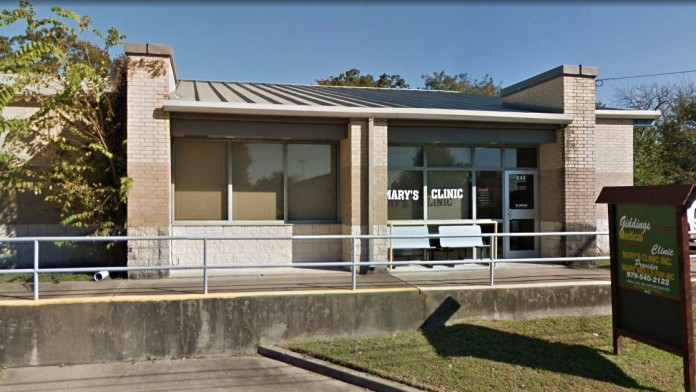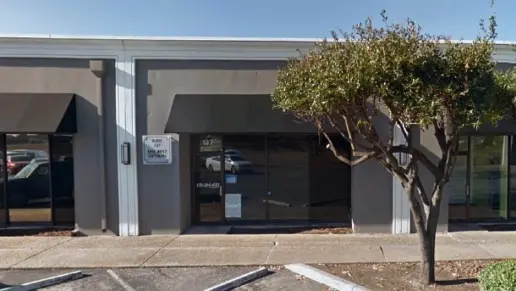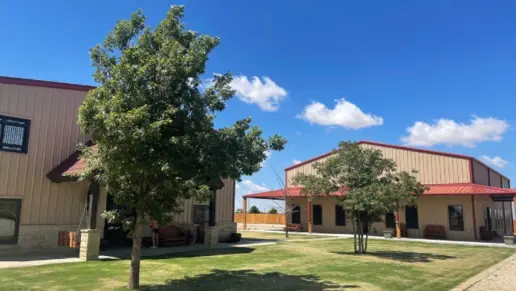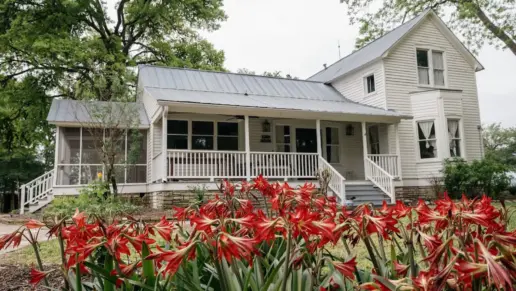About Bluebonnet Trails Community Services
Bluebonnet Trails Community Services’s Lockhart location provides an intensive outpatient program (IOP) and general outpatient alcohol and drug rehab for Caldwell County adults and adolescents. Services include medication assisted treatment (MAT) and continuing care after treatment. They’re tucked away in Lockhart, Texas.
Known as the barbeque capital, Lockhart, Texas, is home to Bluebonnet Trails Community Services. Adults and adolescents can access specialized approaches, early recovery services and treatment referrals to begin or continue their recovery journey. With services across 30 Central Texas counties, they offer several outpatient programs to meet your unique needs.
This Caldwell County location offers outreach, screening, assessment and referral (OSAR) services to find the appropriate treatment approach for you. During this process, you can participate in up to six motivational interviewing sessions and receive additional support in case management.
You can also access medication assisted treatment (MAT) for opioid, alcohol and nicotine addiction. You’ll receive FDA-approved prescriptions to manage the withdrawal symptoms and cravings associated with quitting substances. They also provide a whole-person approach with therapeutic interventions including care coordination, life skills training, relapse prevention education, peer recovery coaching and case management.
What stands out most to me is their Parenting Awareness Drug Risk Education Services (PADRES) program. This track welcomes parents with children under six to participate in comprehensive services. You can access in-person and virtual sessions with case management, peer support, STD and substance abuse harm reduction, parenting classes, financial and housing planning and resources, self-care tools and wellness tools.
The program is culturally competent, trauma-informed and person centered. You’ll receive customized care that accounts for your unique experiences and challenges. You’ll also have a safe space to open up and receive care from professionals who resonate with you.
Another standout feature I noticed was their recovery services in Bastrop County. Less than an hour away, you can access a nine-week intensive outpatient program (IOP). They offer a holistic approach with treatment provided in individual and group sessions. Additionally, you’ll benefit from experiential approaches like animal, art and music therapy. That way you’ll leave treatment with new self-expression outlets to sustain recovery.
Latest Reviews
Rehab Score
Gallery

Location
Accepted Insurance
Other Forms of Payment
Private insurance refers to any kind of healthcare coverage that isn't from the state or federal government. This includes individual and family plans offered by an employer or purchased from the Insurance Marketplace. Every plan will have different requirements and out of pocket costs so be sure to get the full details before you start treatment.
Self-pay involves paying for treatment out of your own pocket. You can use savings or credit, get a personal loan, or receive help from family and friends to fund your treatment. If you don't have insurance or your insurance plan doesn't cover a specific program, self-pay can help ensure you still get the care you need.
Financial aid can take many forms. Centers may have grants or scholarships available to clients who meet eligibility requirements. Programs that receive SAMHSA grants may have financial aid available for those who need treatment as well. Grants and scholarships can help you pai for treatment without having to repay.
Sliding scale payments are based on a client's income and family size. The goal is to make treatment affordable to everyone. By taking these factors into account, addiction recovery care providers help ensure that your treatment does not become a financial burden to you or your family, eliminating one barrier to care.
Medicare is a federal program that provides health insurance for those 65 and older. It also serves people under 65 with chronic and disabling health challenges. To use Medicare for addiction treatment you need to find a program that accepts Medicare and is in network with your plan. Out of pocket costs and preauthorization requirements vary, so always check with your provider.
Military members, veterans, and eligible dependents have access to specific insurance programs that help them get the care they need. TRICARE and VA insurance can help you access low cost or no cost addiction and mental health treatment. Programs that accept military insurance often have targeted treatment focused on the unique challenges military members, veterans, and their families face.
Medicaid is a state based program that helps lower-income individuals and families pay for healthcare. Medicaid covers addiction treatment so those enrolled can use their coverage to pay for rehab. When a program accepts Medicaid the client often pays very little or nothing out of their own pocket.
Addiction Treatments
Levels of Care
Programs

Clinical Services
The goal of cognitive behavioral therapy (CBT) in Texas is to change thought patterns, which leads to changes in behavior. Specific techniques during CBT can include self talk, SMART goals, journaling, and positive activities.
Treatment that takes a dialectical behavior therapy approach focuses on four strategies. Distress tolerance will help you accept and tolerate intense emotions. Emotional regulation will teach you to manage those emotions. Mindfulness will keep you in the present moment instead of regret or worry. Interpersonal effectiveness will teach you to manage your relationships.
Therapy sessions that incorporate motivational interviewing focus on OARS: open questions, affirmation, reflections, and summarizing. This facilitates an exchange of information and an empowering of the client to decide for themselves what changes might need to be made in their lives.
Together with an experienced trauma therapist, you work on healing emotional wounds from traumatic experiences within a trauma therapy environment. Your therapist will help you process the experience of the trauma, which promotes emotional healing and improves your overall mental health.
The right life skills training will help you build the skills you need for recovery. You'll learn how to solve problems, improve your social life, enhance your mental health, and make good decisions. This is a key component of drug rehab programs in Texas.
When used as recommended, nicotine replacement therapy in Texas provides enough nicotine to help you avoid severe cravings and withdrawal symptoms after quitting smoking. This increases comfort so you're less likely to relapse into your smoking habit.
Amenities
-
Private Transportation
-
Private Rooms
Staff & Accreditations
Staff
BOD, Chair
BOD, Vice Chair
BOD, Secretary
Accreditations

State Licenses are permits issued by government agencies that allow rehab organizations to conduct business legally within a certain geographical area. Typically, the kind of program a rehab facility offers, along with its physical location, determines which licenses are required to operate legally.
State License: Texas
Contact Information
2060 S Colorado St
Lockhart, TX 78644









